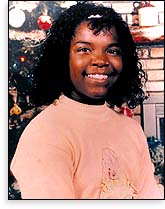
Pressure on Parents

buses of the Child Protective Services system have contributed to children needlessly being taken from their families and placed into state custody. Yet more youth are needlessly turned over “voluntarily” by parents who are pressured and misled into believing it is the only way their children can receive help.
In Colorado, for example, state-funded mental health centers discovered they could sidestep payment caps and increase profits by manipulating the child welfare system.
The abuses began shortly after the state switched to a capitated system of payment for state-funded mental health services in 1995. Under the capitated system, mental health care providers are reimbursed at a set rate per patient enrolled, regardless of the treatment rendered.
No financial cap was placed, however, on the reimbursement of care for children who are wards of the state.
After the capitated system was implemented, several mental health providers slashed or dramatically cut back residential care, which is more costly to deliver. Parents who sought residential treatment for their children were referred to social services, which in turn could only pick up the tab if the child was placed in state custody. Thus the only way some parents could seek “help” was to go to court and sign over their child as a ward of the state.
In 1999, Colorado State Representative Maryanne Keller identified 37 cases of parents who had signed their children over after being told they must make their child a ward of the state in order to receive treatment. Many of these children qualified for treatment under Medicaid and should have been accepted by the facilities under the capitated plan.
Rep. Keller estimates that at least 30 more families were pushed to turn their children over to the state, but did not succumb to the pressure.
Evidence also abounds that the procedure to turn children into wards of the state has been underplayed to parents as a sort of “formality” — a procedure which in fact strips parents of their rights and renders them powerless.
Many regret it, among them Charlene Miles, the grandmother and legal guardian of 16-year-old Roshelle Clayborn. Roshelle died in August 1997 in the Laurel Ridge* psychiatric facility in San Antonio, Texas after she was signed over as a ward of the state.
The Citizens Commission on Human Rights, a watchdog group which has been investigating and exposing abuses in psychiatry for three decades, investigated the case to find that the young girl had been violently restrained and injected with Thorazine, a powerful psychotropic drug frequently referred to as a “chemical straightjacket.” With eight staffers watching, Roshelle’s body stilled, blood trickled from the corner of her mouth and she lost control of her bodily functions. She was rolled into a blanket and stuffed into a “seclusion room.” The next time anyone saw Roshelle, she was dead.
Charlene Miles remains grief-stricken. Having little money and no insurance, she had been forced to make Roshelle a ward of the state in order to get treatment. Shortly after being admitted to Laurel Ridge, the girl began begging Charleen to take her out. “But I couldn’t,” Charleen said. “I had no choice.” With Roshelle a state ward, Charleen had no say or rights when it came to her care.
Seven months after her admission, Roshelle sent a letter again begging to be let out and stating that she thought she would die in Laurel Ridge. Again Charleen was powerless to help.
* Laurel Ridge was under investigation prior to Roshelle’s death in August 1997 and had received warnings to correct abuses within the facility. The facility has since been closed.



